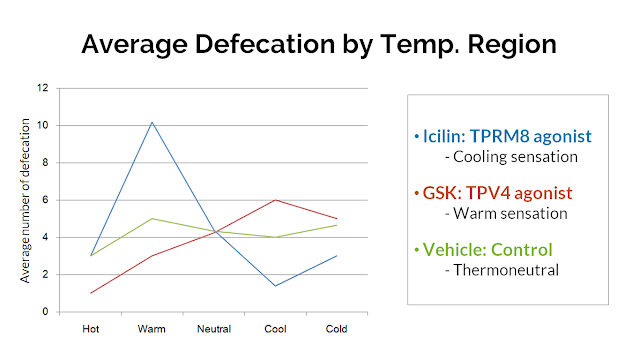Important Conclusions
Determined a positive correlation between excretion (a physiological response) and preferred ambient temperature (a behavioral response). Rats injected with icilin (TRPM8 agonist), a drug that produces a cooling sensation, were shown to both excrete more in the warmer regions of the thermogradient and position themselves more in the warmer region of the thermogradient. Likewise, rats injected with GSK (TPV4 agonist), a drug that produces a warming sensation, exhibited the converse. Rats injected with vehicle, a control drug, showed no apparent preference. TRPM8 is a gene in the brain that is known as the "receptor for cold and menthol." Likewise, TPV4 is known to induce hypersensitivity.

Concluded that rats with lesions do not exhibit the "wet dog shaking" behavior when injected with icilin, while rats without lesions exhibit this behavior. We purposefully lesioned the area of the hypothalamus (of the brain), where wet dog shakes have been empirically shown to originate from. Chart below displays the average number of shakes per rat in a ten-minute period.
Looks like you have some great results, Rohini! Research is especially exciting if you can find statistical correlations in your work; looking forward to seeing your presentation next week!
ReplyDelete